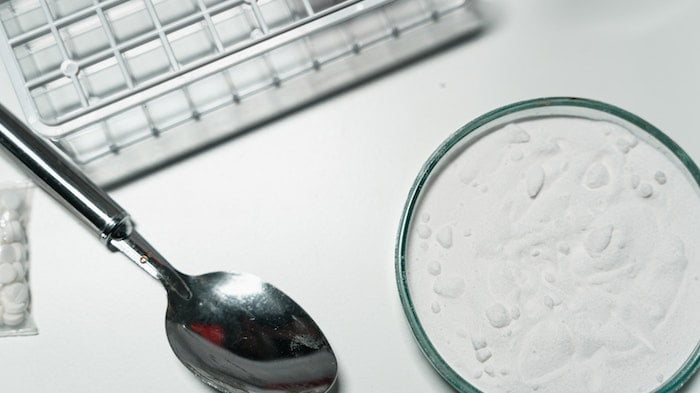Drug & Alcohol Rehab in Wakefield
Substance Use Disorder (SUD) not only damages its victims, but it harms the rest of the community in immeasurable ways.
Unfortunately, reports indicate that the UK is struggling to control the social and economic ramifications of SUD- and Wakefield is no exception.
As stated by experts, the North-East region has an estimated 855,000 people drinking above the Chief Medical Officer’s low-risk drinking guidelines. Moreover, rates of alcohol-related hospital admissions are the highest in England- with only one in five people who require alcohol treatment currently accessing it.
In 2020, the ONS revealed that Yorkshire had seen a rise of 26% in drug offences, with Police Commissioner Dr Alan Billing expressing concern. However, the Commissioner revealed that funds have been invested in drug prevention, including working with schools to spread addiction awareness among young people in the Wakefield area.
You can read more about the disease of addiction here.
Below, we provide some statistics about alcohol and drug use in Wakefield:
| Drug Statistics in Wakefield (2019/20) | Data |
| People who are using either opiates and/or crack cocaine in Wakefield District | 2,927 |
| Adults in treatment for opiate use in Wakefield | 1,565 |
| Drug offences recorded by the police | 1,097 |
| Adults in treatment for non-opiate use | 275 |
For more information and support about drug and alcohol rehab in Wakefield, please contact our dedicated team today at 0800 088 66 86.
How Do I Know if I’m Addicted?

Each experience of substance addiction is personal to the individual and their unique situation, meaning there’s no “one-size-fits-all” when it comes to diagnosis. While some people might reject the notion of being addicted, others may be hypersensitive to the symptoms and misdiagnose themselves or others.
As such, it’s important to either access professional advice in a clinical setting or complete a self-assessment. Such diagnostic tools are an invaluable resource for those who are unsure about whether they’re addicted to a substance.
In cases of alcohol dependence, the AUDIT test is a diagnostic tool informed by scientific research and often used by clinicians. Subjects answer 10 questions in a self-assessment layout to determine the severity of their alcohol dependency.
Questions are categorized into three sections: one to three focus on alcohol consumption, four to six on dependency, and seven to ten on the consequences of someone’s drinking. After working through this format, participants are provided with a score to determine whether their addiction is mild, moderate, or severe.
As long as subjects answer the questions with sincerity, this score should accurately reflect their addiction severity. A total of eight or more indicates a mild to moderate dependency, while a score of over thirteen points to a serious alcohol use disorder.
For the diagnosis of drug use disorders, another trusted model is the Diagnostics and Statistical Manual of Mental Disorders (DSM-5). Instead of asking the subject questions, DSM-5 gives participants criteria of 11 symptoms to determine the seriousness of their addiction.
To align with specific elements of SUD, these symptoms are categorized into four categories: impaired control, social issues, risky use, and physical dependence. For instance, one indicator of someone having social issues because of addiction is becoming withdrawn and avoiding loved ones.
Other symptoms within these categories include increased tolerance and withdrawal, or bodily changes like extreme weight loss/gain. Additional social problems include neglecting responsibilities, while risky use describes consuming a substance in dangerous situations.
Patients suffering from mild substance addiction will typically relate to two or three symptoms on this list. However, those with a severe addiction will likely recognize five symptoms or more- meaning there is a need for medical attention.
If you recognise symptoms of addiction in someone you love, you should try to talk to them calmly about getting treatment. Anyone who has an addiction is psychologically and physically dependent on the substance, as proved by studies such as the study by Terry E Robinson and Kent C Berridge that looked into the ‘Incentive-Sensitization Theory’ and why people crave drugs. Therefore you should not blame your loved one, but instead try to carefully encourage them to get help.
Who Should Enter a Private Drug & Alcohol Rehab in Wakefield?
Addiction is not considered a ‘choice’ or ‘moral failing’ on behalf of the addiction sufferer – so the focus of rehab is always on returning agency to the patient.
If someone has attempted independent recovery many times, but failed, choosing inpatient treatment is a favourable option. This is because they will need the guidance of medical professionals and addiction specialists if they are to achieve long-term sobriety.
Individuals who are dependent on physically addictive substances like heroin or alcohol should also seek inpatient care.
Trying to recover independently from these substances can lead to dangerous withdrawal symptoms that must be treated in a medical facility.
Moreover, those who become violent when experiencing these withdrawal symptoms should also undergo supervised recovery in a specialised private rehab.
Many patients will need to undergo a personalised treatment programme at rehab if they are to recover properly: especially if they are suffering from co-occurring disorders.
According to the NESARC data, 28.6% of people with a current alcohol use disorder diagnosis also had at least one personality disorder such as bipolar disorder.
Conditions like depression, bipolar, and anxiety often accompany SUD, meaning additional support is necessary to accommodate the patient’s needs.
Alcohol addiction, though, is unfortunately common, with a study by Robin Room, Thomas Babor and Jürgen Rehm revealing that ‘4% of the global burden of disease is attributable to alcohol’, accounting for almost as much death and disability as tobacco and high blood pressure (hypertension) globally.
When you stop drinking alcohol after you have been avidly drinking heavily for a prolonged period of time, your body begins a life-threatening process of alcohol withdrawal.
You might find that recognizing that you have a drinking problem is the first step to recovery. Heavy drinking is classed by the NHS as more than 14 units per week.
Acamprosate (Campral®) helps to rebalance the chemicals in the brain that have been damaged by alcohol.
The opioid antagonist Naltrexone can also be helpful in cutting alcohol out of your life as it decreases the amount alcohol you drink.
Drinking alcohol heavily can also cause anxiety and depression, which means you might be able to get prescribed medications such as an antidepressant like nefazodone, desipramine, or imipramine.
If you go on to have CBT therapy for alcohol addiction, a report has revealed that the success rate is 83.87%. Therapy after any rehab treatment you have is therefore highly recommended.
For more information and support about drug and alcohol rehab in Wakefield, please contact our dedicated team today at 0800 088 66 86.
What is Involved in the Rehab Admissions Process?

Our aim here at Rehab Recovery is to simplify the often stressful admissions process while catering to the needs of each patient. Upon reaching out, you’ll be connected to one of our addiction specialists in the admissions team, who will get to work arranging your free consultation.
This consultation takes the form of a laid-back phone call in which patients discuss their requirements for treatment in a safe space. Calls often last around twenty minutes and are fully confidential.
While no situation is identical, patients will need to consider the type of accommodation they’d prefer, a rehab’s location, and how much they’d like to spend. After gathering these preferences, our team will begin structuring a comprehensive referral.
To present each patient with the best treatment programme for their situation, Rehab Recovery uses clinical guidelines such as the ASAM Criteria. This set of objectives provides a framework for deciding where an individual should be located, and which care plan would provide the best outcome.
There are six dimensions of the criteria that clinicians use to make their assessments: including withdrawal potential and readiness to change. While there are many objectives, the principle philosophy of ASAM is to personalize treatment for addiction and consider the intricate needs of each case.
How To Select An Optimal Drug & Alcohol Rehab in Wakefield

Experts have agreed that abstinence is far more effective, so that is what most rehabs work towards.
Choosing a rehab centre is a life-changing process and one that can be overwhelming considering the sheer amount of options.
Therefore, when selecting a drug and alcohol rehab in Wakefield, it’s important to educate yourself on what to look for in a treatment plan.
In your search, it’s important to recognize that each rehab will specialise in different substance use disorders or treatments.
For example, some rehabs are designed to treat severe opiate addictions, while others focus on providing dual-diagnosis treatment.
When comparing facilities, the first thing to ascertain is that each centre is long-established and commendable. This should be easy to see, with clear evidence of positive reviews, and treatment provisions going back at least 2 decades.
For many people, affordability plays a large role in determining whether a particular rehab is viable. Therefore, it’s crucial to enquire about the price of each treatment programme, which usually changes according to duration, accommodation type, and location.
Another tip for choosing a suitable clinic is to ask the staff questions during the admissions process. A quality rehab centre will ensure there’s an addiction specialist on call to reassure potential patients. You should also be able to reach said rehab via email or phone with ease.
For more information and support about drug and alcohol rehab in Wakefield, please contact our dedicated team today at 0800 088 66 86.
Co-Occurring Disorders & Addiction
For people suffering from co-occurring disorders, their substance use disorder manifests alongside another illness. This secondary condition is usually psychological in nature. For example, a patient with depression might use drugs or alcohol as a tool to escape their symptoms.
There’s no standard way for an individual to experience co-occurring disorders. They might be active simultaneously or at different times, and their symptoms may vary from one day to the next.
However, patients who turn to drugs or alcohol to self-medicate will only worsen the problem. Certain substances will simply hide the symptoms of mental health problems, causing them to grow in severity under the surface.
Conversely, substance addiction can imitate the symptoms of a mental health disorder: leading to a diagnosable co-occurring disorder. Both alcoholism and drug use can cause changes in the brain, such as a decrease in serotonin.
Decreased serotonin can be a direct cause of depressive episodes.
Rehab For Cocaine in Wakefield

As anyone recovering from cocaine addiction can attest, this drug has the ability to devastate lives.
To increase a patient’s chance of long-term sobriety, a short-term rehab residency of at least 30 days is encouraged. Longer treatment plans of between 30-90 days are also available for those requiring more intensive therapy.
Here at Rehab Recovery, we can guarantee your place at a leading rehab specialising in cocaine addictions. Treatment programmes cater towards each level of severity and include a psychiatric assessment, medicated detox, psychotherapy, and ongoing care.
Extended recovery from stimulant use disorder always begins with detox: the gradual removal of cocaine from the system. While the exact timeline for detox is case-dependent, patients usually spend around 10 days completing this process.
Individuals may exhibit withdrawal symptoms around 24 hours after use– with these peaking around day 3 of detoxification. As symptoms are normally psychological in nature, medications such as beta-blockers or SSRIs are offered to relieve any anxiety, restlessness, or insomnia.
The rest of your rehab programme for cocaine will include behavioural therapies to treat long-term symptoms. CBT teaches patients to connect their thoughts, feelings, and actions in order to understand more about their addiction.
They’ll then develop strategies to fight these negative patterns.
Rehab For Heroin in Wakefield
Semi-synthetic opioids such as heroin continue to be one of the UK’s most addictive, most dangerous, and most used substances. Thankfully, leading a full and happy life free of heroin is possible.
This can be achieved through treatment programmes at a drug and alcohol rehab in Wakefield.
Due to the severity of heroin addictions, patients often benefit most from residential treatment. This describes living at a rehab facility full-time, for between 60-90 days and allows time to complete a comprehensive programme.
As withdrawal from opioids can be dangerous, even life-threatening, it’s crucial to remain in the safety of an inpatient facility.
Within a structured routine, patients at rehab for heroin can expect to undergo detox, daily therapy, behavioural counselling, and group support. While patients are given downtime between therapy sessions, they also have 27/7 access to a team of medical professionals as and when they need it.
One frequently used treatment in rehab for opioids is Contingency Management (CM). This type of behavioural therapy uses motivational incentives to encourage sobriety.
Tangible rewards are given to those who reach treatment milestones, provide clean drug tests, and continue meeting the requirements of their programme. CM programmes can reward patients with cash prizes, outings, and vouchers that can be exchanged for other items or activities.
For more information and support about drug and alcohol rehab in Wakefield, please contact our dedicated team today at 0800 088 66 86.
Rehab for Cannabis in Wakefield

While cannabis may not be physically addictive like heroin, it can cause severe psychological dependencies. Many people use marijuana as a coping mechanism for underlying health issues: for example, getting high to decrease anxiety.
A study by Wayne Hall and Louisa Degenhardt identified that cannabis is not entirely harmless as the adverse side effects of regular use of cannabis during adolescence and into adulthood can include ‘a dependence syndrome, increased risk of motor vehicle crashes, impaired respiratory function, cardiovascular disease, and adverse effects of regular use on adolescent psychosocial development and mental health’.
Those entering treatment for cannabis are often unable to complete daily tasks without being highand have failed to quit multiple times. Fortunately, a variety of treatment plans, both inpatient and outpatient, are available at a drug and alcohol rehab in Wakefield.
Regardless of severity, each patient aiming to quit cannabis must undertake detox. Though physical symptoms rarely manifest, psychological symptoms might present within the 7-10 day detox.
Detox provides a solid basis for future treatment, whether this be on an outpatient or residential basis. Unless they are high-functioning, individuals with chronic cannabis addictions are encouraged to complete a 28-day treatment plan.
One important component of treatment for cannabis addiction is behavioural therapy. CBT and DBT are similar styles of talking therapy that can be completed in multiple treatment settings. Both branches help patients to interrogate their cannabis use, and find ways to manage triggers.
What Styles of Therapy are used in Rehab?

Therapies at rehab in Wakefield
1. Contingency Management (CM)
Also known as Motivational Incentives, CM is a behavioural therapy that provides rewards for desired outcomes in treatment. If patients attend therapy sessions, maintain treatment expectations, and remain sober, the chance of rewards will increase.
CM programmes are carried out in the hopes that these rewards will outweigh the perceived rewards gained from substance use. The most effective incentives are often tangible and include voucher tokens, cash prizes, additional therapy, and so forth.
2. Cognitive Behavioural Therapy (CBT) at a drug and alcohol rehab in Wakefield
Present in addiction treatment since the 1970s, CBT uses the connection between thoughts, emotions and behaviours to treat substance addiction. It works with the premise that substance addiction is caused by self-destructive thought patterns and cycles of behaviour.
Collaborative by nature, CBT therapists encourage patients to self-evaluate and identify the negative thought patterns that have led to their SUD. After a series of sessions, patients are equipped with the tools to manage their triggers and avoid future relapse.
3. Dialectical Behavioural Therapy (DBT)
This modified branch of CBT is adapted for those who feel emotions intensely, and who may be struggling with their emotional recovery. Therefore, those who benefit most from DBT often have a history of unresolved trauma or negative life events that have contributed to their SUD.
These workshops teach individuals to manage stress effectively and manage their emotions to improve their relationships with others.
4. Motivational Interviewing (MI)
MI aims to move patients away from a state of indecision regarding treatment. This person-centred counselling is completed on a one-to-one basis with the hope of improving someone’s motivation levels over time.
An MI counsellor will work with their patient to form a list of personal goals and work through their feelings towards recovery. By communicating in this collaborative way, the subject’s goals will seem more tangible, and therefore easier to achieve.
5. Holistic Therapy
Often used in tandem with psychotherapy, holistic therapy is a non-traditional treatment for addiction that aims to heal the patient entirely. This means taking into account the mind, body, and spirit of an individual rather than just addressing the symptoms of SUD.
Holistic programmes can be customised to suit each patient, with different activities offered based on someone’s preferences, previous hobbies, and particular struggles. Some examples of popular holistic workshops in rehab include mindfulness, yoga classes, martial arts, and nutritional therapy.
Moreover, this type of alternative therapy in Wakefield is effective when used alongside behavioural counselling. This is because holistic activities focus on wellness and stress reduction: meaning that patients can manage any negative emotions that arise during CBT.
The Alternatives to Rehab

Image above: A conversation at a drug and alcohol rehab in Wakefield
Professionally supported drug and alcohol rehab in Wakefield is one of the best ways to recover from addiction, but it isn’t for everyone.
While rehab treatment can be adapted to suit many different cases, it may simply not be the right treatment for some.
From visiting a drug and alcohol rehab in Wakefield as an outpatient, to home detoxing, there’s an alternative option to suit each situation in Wakefield.
1. Home Detox
Providing they are able to complete this treatment phase in Wakefield without medical care, a home detox is viable for those with mild SUD. By receiving remote advice from professionals and avoiding an inpatient stay, patients can save both money and time.
Initially, patients will need to complete an assessment, whereby an addiction specialist will decide their eligibility for home detox. They’ll ask you about your substance use history, and any co-occurring disorders, and try to gauge your motivation for treatment.
Before the home detox, you’ll be given plenty of online resources to make sure you feel supported. Additionally, a medical professional can perform virtual check-ups, or even visit you at home to ensure the smooth running of your detox.
In the event that you experience withdrawal, medication can be prescribed and set out via post. Oftentimes, drugs such as Naltrexone are recommended for reducing cravings, while Benzodiazepines can help alleviate psychological symptoms.
2. Outpatient Treatment
Unlike a residential rehab programme, outpatient care is only onsite temporarily. Patients will travel to a drug and alcohol rehab in Wakefield for their therapy appointments, and return home to take care of any responsibilities.
As such, outpatient treatment in Wakefield is becoming increasingly popular for those with mild substance addictions, or responsibilities to maintain at home or work. You’ll have the same access to quality care, and guidance from addiction specialists, while being able to return home in Wakefield in the evenings.
While this may sound like a viable option, and is for many, it’s important to note the dangers of outpatient treatment for severe SUD cases. If someone’s substance use is triggered by elements of their home environment, it can be dangerous to attempt sobriety away from rehab.
3. Fellowship Groups
Attending therapeutic community meetings is one of the best ways to achieve long-term sobriety in Wakefield. While patients learn many tools in rehab, the outside world can be challenging, and it’s important to have a supportive group of peers around you.
Narcotics Anonymous Wakefield (NA) is a global, community-based organization that aims to connect those in recovery from drug use disorders. Since its small-scale beginnings in the 1970s, NA has since been building support networks and accepting all members regardless of gender, race, and political stance.
Alcoholics Anonymous Wakefield (AA) is a similar abstinence-based fellowship group that is specifically for those recovering from alcoholism. Present in communities worldwide, AA sessions are characterized by their use of a 12-step programme.
This is a set of philosophical values for leading a happier, sober life that AA members work through together.
For more information and support about drug and alcohol rehab in Wakefield, please contact our dedicated team today at 0800 088 66 86.
Get Help Today

For further advice and support about drug and alcohol rehab in Wakefield, please contact Rehab Recovery today at 0800 088 66 86.
References
[1] Adult Drinking Habits in Great Britain Adult drinking habits in Great Britain – Office for National Statistics (ons.gov.uk)
[2] Free Will and the Brain Disease of Addiction https://www.ncbi.nlm.nih.gov/pmc/articles/PMC5672554/
[3] Abuse Recovery: Moderation vs Abstinence https://dualdiagnosis.org/drug-addiction/recovery-abstinence-vs-moderation/
[4] Adult Substance Misuse Treatment Statistics From 2019 to 2020
[5] Alcoholics Anonymous https://www.aa.org/
[6] Narcotics Anonymous https://www.na.org/
[7] SMART Recovery https://www.smartrecovery.org/
[8] ASAM Criteria https://www.asam.org/asam-criteria
[9] DSM-5 Criteria for Addiction https://www.addictionpolicy.org/post/dsm-5-facts-and-figures
[10] Community Reinforcement and Family Training (CRAFT) https://www.apa.org/pi/about/publications/caregivers/practice-settings/intervention/community-reinforcement
[11] Twelve Step Facilitation Therapy https://pubs.niaaa.nih.gov/publications/projectmatch/match01.pdf
[12] The Cenaps Model of Relapse https://pubmed.ncbi.nlm.nih.gov/2197389/
[13] Cognitive Behavioural & Relapse Prevention Strategies Cognitive Behavioural & Relapse Prevention Strategies (unodc.org)
[14] South Yorkshire Police and Crime Commissioner https://southyorkshire-pcc.gov.uk/news/big-falls-in-crime-figures-drugs-are-an-exception/
[15] Alcohol Health Alliance Alcohol Health Alliance (ahauk.org)
[16] The UK Office For National Statistics Home – Office for National Statistics (ons.gov.uk)


